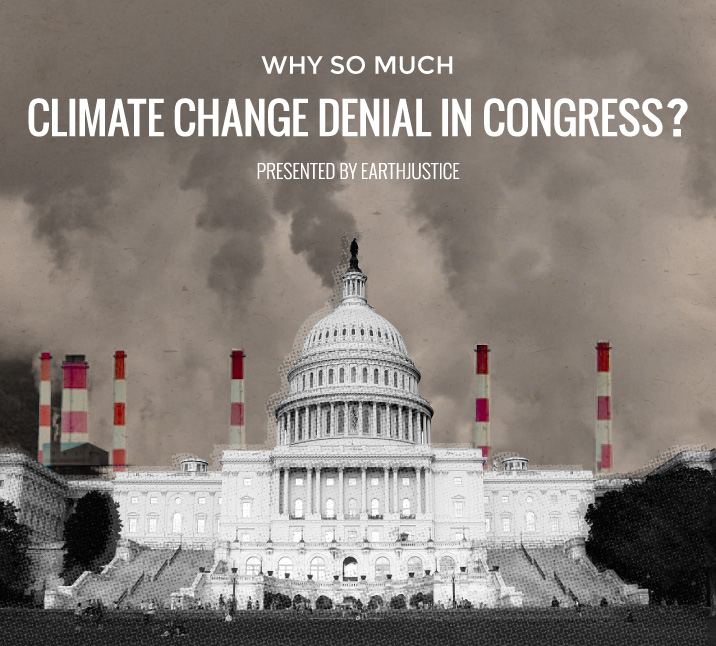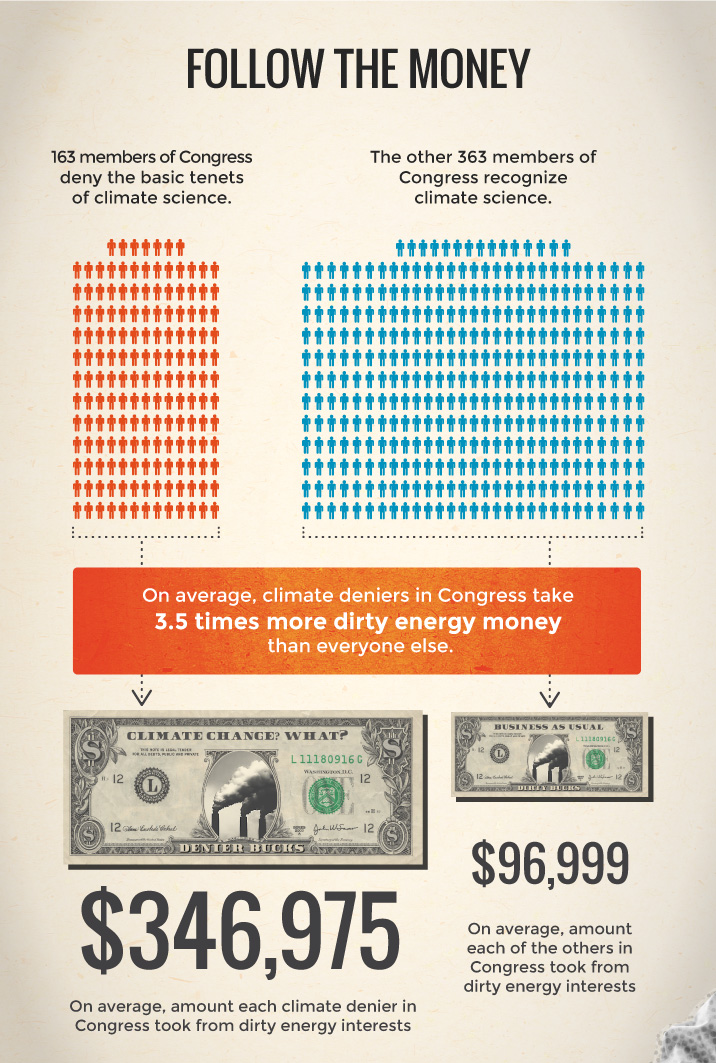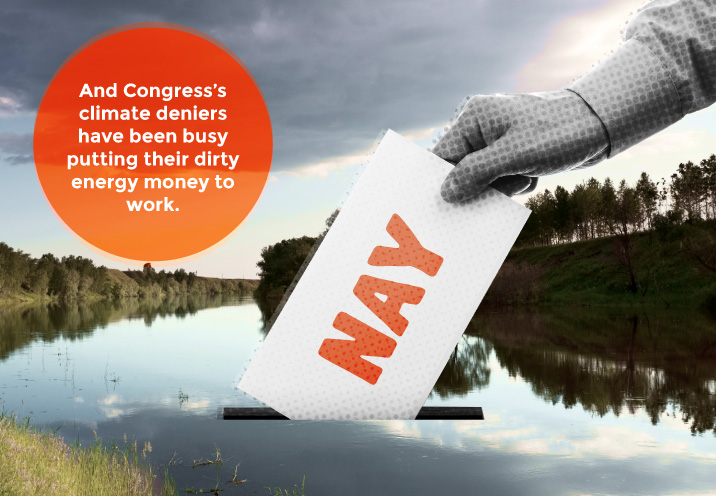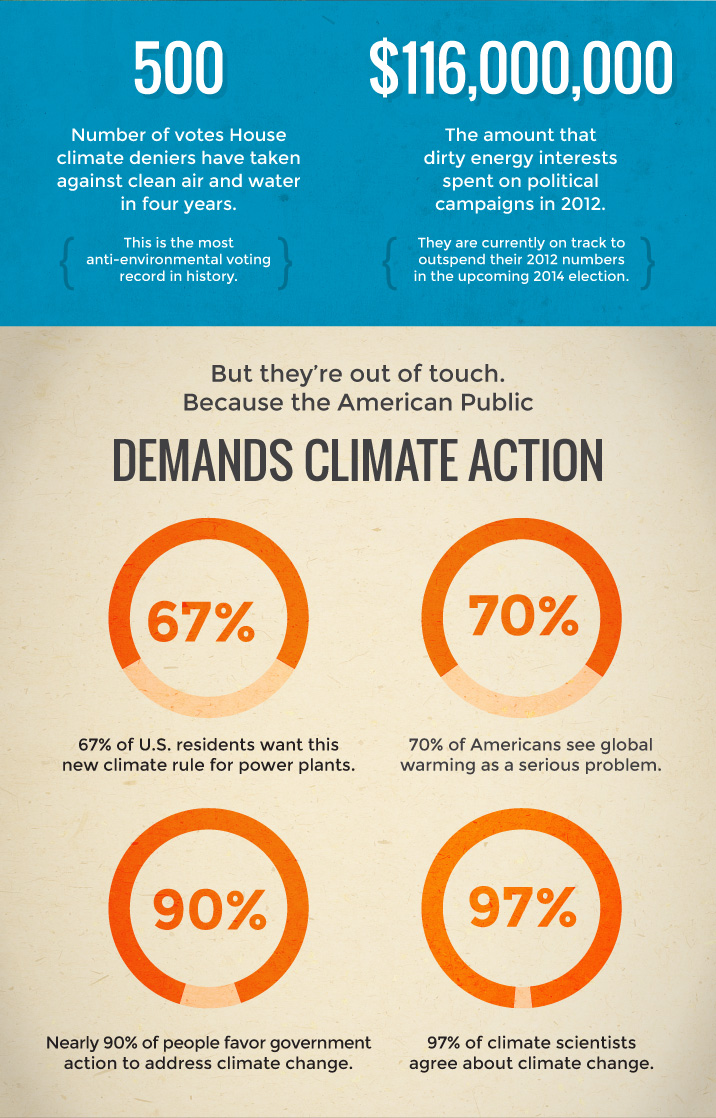As the US Environmental Protection Agency attempts to draw down emissions from power plants via its Clean Power Plan, fossil fuel interests are, of course, fighting back. A new special report from Earthjustice exposes the “unparalleled political spending by dirty energy industries” intent on defeating the EPA‘s climate initiative.
Power plants, especially those that burn coal and natural gas, are responsible for nearly one-third of all global warming emissions in the US, making electricity production the single biggest source of climate change pollution. There are currently no limits on how much carbon dioxide power plants can dump into the atmosphere.
Burning coal for electricity in particular has also been found to have dire impacts on human health at every stage of its life cycle. But those who live nearby coal-fired power plants suffer some of the worst of it: children are more likely to have asthma if they live by a plant burning coal, and mercury pollution from coal has been linked to higher incidence of autism and other developmental issues.
There’s a social justice angle to consider too: coal-fired power plants are much more likely to be situated near a low-income community or community of color, forcing people who have done the least to contribute to the problem to deal with a disproportionate share of the impacts. According to Earthjustice, 40% of the US‘s Latino population lives within 30 miles of a power plant.
The EPA‘s Clean Power Plan aims to reduce emissions from US power plants some 30% below 2005 levels by 2030, but it will have a host of other economic and health benefits as well. Earthjustice says that imposing emissions limits on power plants could prevent as many as 100,000 asthma attacks in children every year, and by cutting their climate pollution Americans could save $13 billion a year on their energy bills.
Which begs the question Earthjustice set out to answer: “When acting on climate change has the added benefits of cleaner air that’s easier to breathe, healthier communities, safer people and homes, economic protection and even growth, why would elected officials oppose it?”
As the saying goes, just follow the money.
There are 163 members of Congress who outright deny climate science, versus 363 who acknowledge its validity. On average, Earthjustice found, those 163 climate denying members of Congress have taken $346,975 over the course of their careers, nearly 350% as much as the $96,999 taken by their colleagues.
Not only that, but fossil fuel interests spent some $116 million on political campaigns in 2012, and are on pace to spend even more on this year’s mid-term elections.
So what did all that money spent on Congress buy the fossil fuels industry? More than 500 votes “against clean air and water” over the past four years, even as demands for climate action have grown louder and louder. (That’s 317 anti-environment votes in the 112th Congress, and 223 in the 113th Congress.)
Abigail Dillen, Earthjustice’s Vice President of Litigation for Climate and Clean Energy, says that while the group wants to see the Clean Power Plan implemented, there are a number of things that need to be done to strengthen it, as well.
“Polluters will do everything they can to block or weaken these safeguards,” Dillen tells DeSmog. “They will always put their profits ahead of the health of our families and communities. That means that the Clean Power Plan has to be clear, fair, and enforceable.” Particularly, Dillen says, what’s needed is a process for tracking and confirming carbon pollution reductions from power plants, as well as binding milestones. “And EPA has to have a strong oversight role to ensure that every state does its fair share to reduce carbon pollution,” Dillen adds.
The EPA also needs to reevaluate the baseline it’s using for emissions reductions, Earthjustice argues. “The plan gives states 15 years to achieve reductions, even in cases where states are already halfway or most of the way there. States can and are already doing better,” according to the special report.
Here is the series of infographics Earthjustice has produced to accompany its report:
Top Image Credit: Sean Locke Photography / Shutterstock.com
Subscribe to our newsletter
Stay up to date with DeSmog news and alerts











